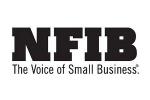WASHINGTON — The beginning of the year offers a chance to reflect on what’s come before and prepare for what the next 12 months might bring. To take advantage of this mindset, the National Federation of Independent Business (NFIB) recently hosted a webinar, “7 New Year’s Resolutions for Your Business,” to help owners get themselves and their business ready for 2023.
The webinar was hosted by Beth Milito, executive director of NFIB’s Small Business Legal Center, and Holly Wade, executive director of the NFIB Research Center.
“Starting off the new year, we wanted to put together some resolutions, as we’re calling them, to help restart or revamp how you see your business, what ideas might be helpful for you in operating your business in the new year,” Wade says.
Write/Revise Your Business Plan
Wade believes that creating a business plan isn’t just for people who are starting a company.
“It’s always helpful for established businesses to have a business plan,” she says. “Even if you’ve never written one before, put together a plan, and then revise it. Look over every year to see what adjustments might be helpful for your business. It’s a good way to set out a roadmap for your company.”
Wade says that taking an across-the-board approach here can be valuable. “Look at the steps in all your areas of operation to see if there are things to improve upon,” she says. “Maybe there are areas of your operation that you haven’t thought of in a while that might be worth taking a second look.”
There are three questions Wade believes owners of small businesses — like most dry cleaners — should be asked when it comes to making or revising a business plan:
- Does this certain product or service I sell still make sense in this economy, or does it need to change?
- Are my business’ current financial needs the same as before, or do they need more funding?
- What do I need to do to adapt my business to the current market in order to stay competitive?
Another area to examine is identifying your customers, Wade says.
“How can you reach new customers, and what are the potential issues customers run into with your product or service?” Wade asks. “And then, what are your customers willing or not willing to pay for your product or service? Over the last two years, customer spending has shifted greatly. Thinking through all of these dynamics is very helpful.”
Finally, Wade suggests that owners include their employees’ feedback when it comes to making or revising a business plant.
“They are often the face of your business," she says, “and so sometimes they are the ones who talk to the customers more often than the owner. Soliciting feedback from employees is also helpful in providing that two-way communication and better understanding areas of your business that you might not be as aware of.”
And, in a tight labor market, Wade believes including employee feedback can include added benefits. “Implementing feedback from employees can foster a positive manager-to-employee relationship, boosting retention,” she says.
“Writing or revising a business plan can be a daunting task,” Wade says. "It does take a bit of time to write out and think through all of the areas of putting together a plan.” There are business plans templates available, including plans from the Small Business Administration (SBA) and the Service Corps of Retired Executives (SCORE).
As consumer trends, economic conditions and technology are constantly evolving, Wade believes that revisiting these questions annually is a great way to check on the state of your company: “Whether you have a business plan already or are just making one now, it’s always a good idea to look it over on a yearly basis, and revise where it needs adjusting.”
Come back Tuesday for Part 2 of this series, when we’ll examine how to approach your marketing plan in 2023.
Have a question or comment? E-mail our editor Dave Davis at [email protected].












































































































